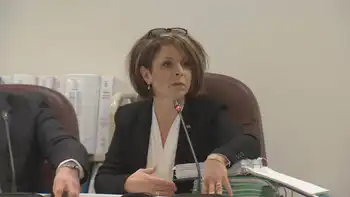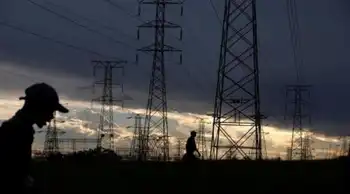Germans miss out on cheaper power
By Reuters
CSA Z462 Arc Flash Training - Electrical Safety Essentials
Our customized live online or in‑person group training can be delivered to your staff at your location.

- Live Online
- 6 hours Instructor-led
- Group Training Available
Market competition is not, therefore, working as well as it should, its critics conclude.
A number of big firms have announced prices hikes, meaning many of the 40 million households in Europe's biggest economy will not benefit from discounted wholesale power — despite cheaper oil and weak demand.
"Wholesale prices have been falling significantly for the past 14 months, you would expect this to result in lower prices for retail customers at some stage," said Thorsten Kasper, energy specialist at the Federation of German Consumer Organizations, VZBV in Berlin.
"If competition was fully functioning, it should not take that long for lower prices to arrive, but they haven't."
Some 40 firms, including big players Vattenfall Europe and EWE will hike retail power prices by at least 5 percent from January, although others such as E.ON and RWE will hold theirs steady.
But retail prices across the country had already risen by 7 percent in the year to date.
By contrast, the wholesale contract for round-the-clock power delivery in 2010, at 44 euros a megawatt hour, is some 25 percent below the price 12 months ago, Reuters data shows.
There are valid reasons for higher prices.
Hundreds of local distribution firms without generation assets of their own buy one or two years ahead and are sitting on expensive supply contracts agreed in 2007 and 2008.
Also, Germany's feed-in tariff for renewable energy, which is mandatory, will rise from January under legal provisions.
The bill for renewables which is shared by all consumers in 2010 is forecast to go up to 12.7 billion euros (US$19.13 billion) from 10.0 billion in 2009, said industry association BDEW.
But energy regulator Matthias Kurth has said that some companies were using this fact to blur their own pricing strategy.
His authority had worked out that the renewable rises should contribute 0.2 cents per kilowatt hour (kWh) to the retail price which is roughly around 20 cents/kWh.
But some companies have claimed they needed to charge up to 2.0 cents/kWh to represent their rising renewables bill.
"Something's wrong there," Kurth said.
However, Kurth himself contributed to higher prices by allowing power grid operators higher network usage fees.
Taxes and fees make up 39 percent of total retail bills in Germany, which means the state benefits from high prices.
By contrast, the Czech and Dutch markets are lowering retail power prices next year as renewable fees are cut, or companies' trading arms behaved more prudently than German peers and hedged their purchases more successfully.
Utilities are shielded from an immediate backlash, partly due to customers' lethargy. Outrage at the higher costs has been limited and so is switching suppliers.
BDEW says while some 20 percent of customers have left their former monopoly supplier since liberalization 10 years ago, some 41 percent opted for basically the same old contracts offered by traditional firms in new guise and 39 percent changed nothing.
"Many utility companies still bet on the customers' inaction," said Thorsten Storck, spokesman for the internet portal Verivox, which compares prices and encourages switches.
But analysts studying sectoral changes more deeply see a growing number of customers who can afford, for example, green power at a premium and who are interested in self sufficiency and control of what type of energy they consume.
"I would go as far as saying the readiness of such customers to study alternative power supply models such as decentralized supplies is enhanced by higher prices," said Wolfgang Haag, a partner at consultancy A.T. Kearney.











